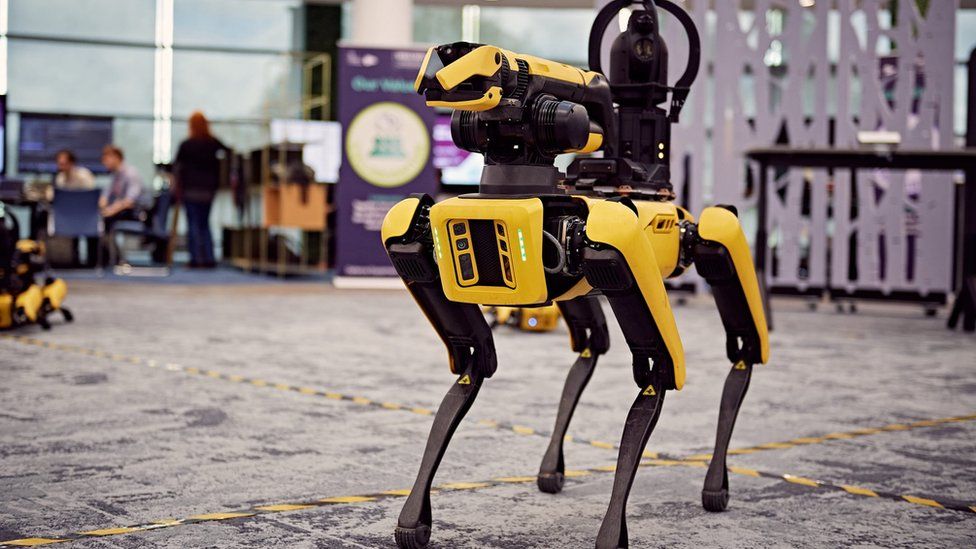Robot Dog Olympics takes place at MoD in Bristol
- Published

Computer programmers were able to make the robot dogs play skittles and perform gymnastics
Teams of computer programmers have taken part in a Robot Dog Olympics to develop innovative tech solutions for the British Army.
Around 40 coders from across the country assembled at Ministry of Defence (MoD) Abbey Wood in Bristol.
They were challenged to programme the robotic dogs to perform tasks including a 50-metre sprint and gymnastics.
Chris Burton, from technology company IBM, said the event was "really interesting in terms of collaboration".
The technology behind the robotic dogs is not new, but the way they can be programmed is constantly advancing.
The Robot Dog Olympics gathered together some of the brightest minds from all over the country to pool their knowledge and come up with new ideas.
Mr Burton, an architect for IBM, said: "It's been great to actually get in a room and start playing around with it [the technology].
"Just to kind of see what can you do with these robots."
Natasha Dell, an algorithm engineer from Thales, added: "I have been really surprised by how agile and responsive the robotic dogs are.
"They are incredibly mobile and the speed at which they move is impressive as well as the tasks they can complete."
The idea is for them to do jobs that are too dangerous or impossible for humans
The robots are designed to perform non-offensive tasks to protect troops and do not carry firearms.
Instead they aid troops by searching and scanning or delivering medicine and food into disaster areas.
The event was run by the Future Capabilities Group (FCG) at Defence Equipment and Support, the procurement arm of the MoD.
Suzy Harris, head of expeditionary robotics for the FCG, said: "Robotics and autonomous systems are becoming increasingly important in allowing soldiers to operate faster, for longer and enabling them to step back from some of the most challenging and dangerous tasks."
Teams from technology companies across the UK experimented with how to control the machines
The event also ran in conjunction with Team Defence Information, a body that helps develop innovative solutions for the front line.
Colonel Dan Anders-Brown added: "The coders have confirmed what we already knew.
"These are highly capable systems and could significantly reduce risk to life of our soldiers by removing the requirement to carry out dangerous activity in the modern battlespace."
Follow BBC West on Facebook, external, Twitter, external and Instagram, external. Send your story ideas to: bristol@bbc.co.uk , external
- Published31 March 2022
- Published28 January 2022
- Published11 May 2020